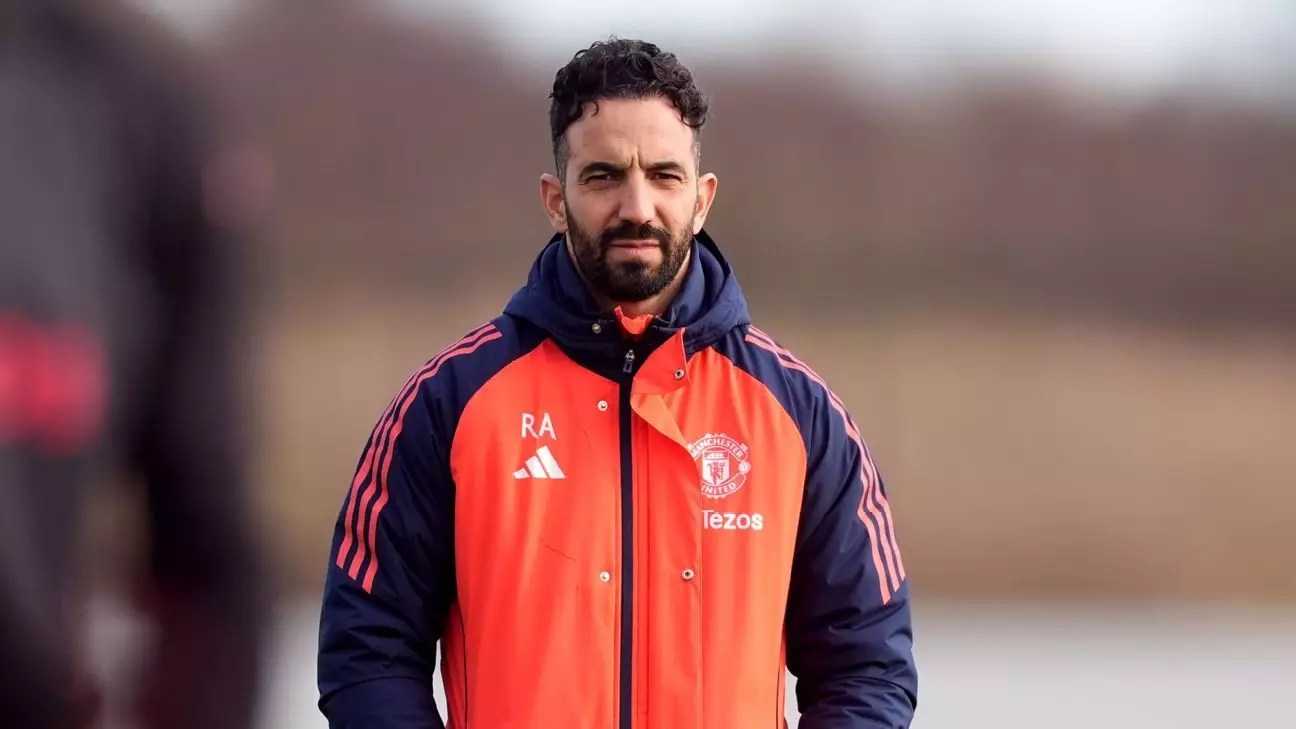In the high-stakes world of professional football, the narrative often swings on a pendulum between praise and criticism. Recently, Manchester United co-owner Sir Jim Ratcliffe made headlines by candidly stating that certain players are “overpaid and not good enough.” This statement was not just a simple jab but a call to arms that resonated deeply within the club. In response, Ruben Amorim, the team’s manager, adopted an uncharacteristically defiant stance, urging his players to embrace this criticism as a catalyst for change rather than a source of resentment.
Amorim’s approach reflects an important lesson in leadership: accountability. By acknowledging the critique and including himself in the squad’s underperformance, he creates a culture where everyone, regardless of stature, is responsible for results. This perspective is particularly crucial in a club like Manchester United, which has a storied legacy and high expectations. Such candid discussions pave the way for a constructive team environment where players can transform their on-field performances.
The Players Striving for Redemption
This season has been rife with challenges for United’s roster, causing many to question the potential of star players like Jadon Sancho, Antony, and even seasoned veterans like Casemiro. Amorim highlighted this by pointing out that these individuals have a wealth of experience and accomplishments yet are not currently living up to their potential. His assertion that performers who have already conquered football’s highest echelons are capable of more speaks volumes about the expectations placed on them.
Moreover, the emotional aspect of sport cannot be underestimated. Players often thrive on belief and motivation—or, conversely, falter under doubt. Amorim’s confidence in their ability to reverse the narrative serves as a motivating force, emphasizing the importance of resilience in professional sport. It is imperative that the players channel this criticism into a driving force, demonstrating that they can rise above adversity and nosedive into success once again.
Strategic Outlook and Player Welfare
In the face of criticism and mounting pressure, strategizing effectively becomes essential. Amorim’s acknowledgment of injury challenges, including players like Mason Mount and Harry Maguire, illustrates the many layers of complications that professional teams must navigate. His transparent updates regarding player fitness not only guide strategic decisions but also bolster team morale. It reinforces the notion of unity—with every member being vital to the collective goal.
There is a fine balance to strike between nurturing talent and addressing shortcomings. For Amorim, this means placing faith in both seasoned players and emerging talents within the squad, fostering an environment where learning and growth are possible. The potential return of Manuel Ugarte adds another layer of complexity, showcasing the constant evolution of the squad as they prepare for a crucial matchup against Real Sociedad.
Building a Legacy through Hard Work
Ultimately, the onus is on the players to accept this robust challenge presented by their co-owner and manager. The power of hard work and determination cannot be overstated in the journey of any football team, especially one with the weight of Manchester United’s history. Amorim’s insistence that all stakeholders—players and staff—can reshape perceptions through their actions speaks to a deeper philosophical underpinning of sportsmanship. This is not merely a desire for applause; it is about crafting a legacy rooted in perseverance, determination, and the unwavering spirit to overcome.


Leave a Reply